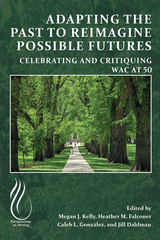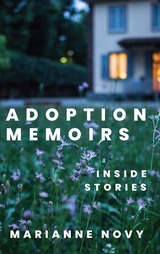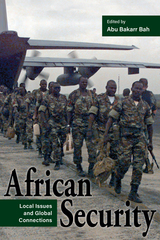
Globalisation has created an interconnected world, but has not diminished violence, militarism and inequality. The Economics of Killing describes how the power of global elites, entrenched under globalisation, has created a deadly cycle of violence.
In this groundbreaking work, Vijay Mehta shows how attempts at peaceful national development are routinely blocked by Western powers. He locates the 2008 financial crisis in US attempts to block China's model of development. He shows how Europe and the US conspire with regional dictators to prevent countries from developing advanced industries, and how this system has fed terrorism.
Mehta argues that a different world is possible, based on policies of disarmament, demilitarisation and sustainable development. This original and thought-provoking book will be of great interest to anyone concerned about the consequences of endless war fuelled by the West.
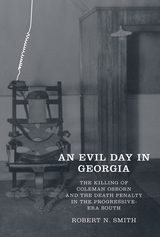
In An Evil Day in Georgia, author Robert Smith raises lingering questions about the
guilt of two men—one white and one black—executed for a murder in the Deep South
in the 1920s. . . . The telling of this story, one that played out in the Jim Crow era and the
days of bootlegging and the Ku Klux Klan, exposes the death penalty’s imperfections even
as it calls into question the veracity of a woman’s confession, later recanted, that
once brought her within a stone’s throw of the state’s electric chair.”
—John Bessler, author of Cruel and Unusual: The American Death Penalty
and the Founders’ Eighth Amendment
On the night of August 5, 1927, someone shot and killed Coleman Osborn, a store owner in
Chatsworth, Georgia, in his place of business. Police and neighbors found only circumstantial
traces of the murderer: tire tracks, boot prints, shell casings, and five dollars in cash near
Osborn’s body. That day, three individuals—James Hugh Moss, a black family man locally
renowned for his baseball skills; Clifford Thompson, Moss’s white friend who grew up in the
Smoky Mountains; and Eula Mae Thompson, Clifford’s wife and a woman with a troubling history
of failed marriages and minor run-ins with the law—left Etowah, Tennessee, unknowingly
on a collision course with Deep South justice.
In chilling detail, Robert N. Smith examines the circumstantial evidence and deeply flawed
judicial process that led to death sentences for Moss and the Thompsons. Moving hastily in the
wake of the crime, investigators determined from the outset that the Tennessee trio, well known
as bootleggers, were the culprits. Moss and Clifford Thompson were tried and convicted within a
month of the murder. Eula Mae was tried separately from the other two defendants in February
1928, and her sentence brought her notoriety and celebrity status. On the night of her husband’s
execution, she recanted her original story and would change it repeatedly in the following years.
As reporters from Atlanta and across Georgia descended on Murray County to cover the trials
and convictions, the public perception of Eula Mae changed from that of cold-blooded murderer
to victim—one worthy of certain benefits that suited her status as a white woman. Eula Mae
Thompson’s death sentence was commuted in 1928, thanks in part to numerous press interviews
and staged photos. She was released in 1936 but would not stay out of trouble for long.
An Evil Day in Georgia exposes the historic deficiencies in death penalty implementation
and questions, through its case study of the Osborn murder, whether justice can ever be truly
unbiased when capital punishment is inextricably linked to personal and political ambition and
to social and cultural values.
Robert N. Smith is an independent scholar living in Oxford, England.

A canonical great poem, or mahākāvya, of the Sanskrit canon, depicting a well-known episode from the Mahābhārata.
Magha’s The Killing of Shishupala, written in the seventh century, is a celebrated example of the Sanskrit genre known as mahākāvya, or great poem. This adaptation from the epic Mahābhārata tells the story of Shishupala, who disrupts Yudhishthira’s coronation by refusing to honor Krishna, the king’s principal ally and a manifestation of divinity. When Shishupala challenges Krishna to combat, he is immediately beheaded.
Magha, who was likely a court poet in western India, draws on the rich stylistic resources of Sanskrit poetry to imbue his work with unparalleled sophistication. He expands the narrative’s cosmic implications through elaborate depictions of the natural world and intense erotic sensuality, mixing myth and classical erudition with scenes of political debate and battlefield slaughter. Krishna is variously portrayed as refined prince, formidable warrior, and incarnation of the god Vishnu protecting the world from demonic threat.
With this translation of The Killing of Shishupala, presented alongside the original text in the Devanagari script, English readers for the first time gain access to a masterwork that has dazzled Indian audiences for a thousand years.
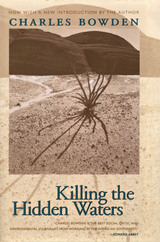
In the quarter-century since his first book, Killing the Hidden Waters, was published in 1977, Charles Bowden has become one of the premier writers on the American environment, rousing a generation of readers to both the wonder and the tragedy of humanity's relationship with the land.
Revisiting his earliest work with a new introduction, "What I Learned Watching the Wells Go Down," Bowden looks back at his first effort to awaken people to the costs and limits of using natural resources through a simple and obvious example—water. He drives home the point that years of droughts, rationing, and even water wars have done nothing to slake the insatiable consumption of water in the American West. Even more timely now than in 1977, Killing the Hidden Waters remains, in Edward Abbey's words, "the best all-around summary I've read yet, anywhere, of how our greed-driven, ever-expanding urban-industrial empire is consuming, wasting, poisoning, and destroying not only the resource basis of its own existence, but also the vital, sustaining basis of life everywhere."
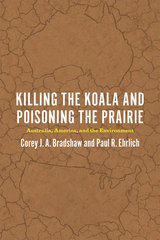
In this book, Bradshaw and Ehrlich provide a spirited exploration of the ways in which the United States and Australia can learn from their shared problems and combine their most successful solutions in order to find and develop new resources, lower energy consumption and waste, and grapple with the dynamic effects of climate change. Peppering the book with humor, irreverence, and extensive scientific knowledge, the authors examine how residents of both countries have irrevocably altered their natural environments, detailing the most pressing ecological issues of our time, including the continuing resource depletion caused by overpopulation. They then turn their discussion to the politics behind the failures of environmental policies in both nations and offer a blueprint for what must be dramatically changed to prevent worsening the environmental crisis.
Although focused on two nations, Killing the Koala and Poisoning the Prairie clearly has global implications—the problems facing the United States and Australia are not theirs alone, and the solutions to come will benefit by being crafted in coalition. This book provides a vital opportunity to learn from both countries’ leading environmental thinkers and to heed their call for a way forward together.
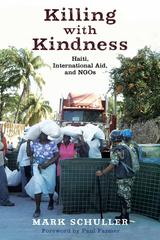
Winner of the 2015 Margaret Mead Award from the American Anthropological Association and the Society for Applied Anthropology
After Haiti’s 2010 earthquake, over half of U.S. households donated to thousands of nongovernmental organizations (NGOs) in that country. Yet we continue to hear stories of misery from Haiti. Why have NGOs failed at their mission?
Set in Haiti during the 2004 coup and aftermath and enhanced by research conducted after the 2010 earthquake, Killing with Kindness analyzes the impact of official development aid on recipient NGOs and their relationships with local communities. Written like a detective story, the book offers rich ethnographic comparisons of two Haitian women’s NGOs working in HIV/AIDS prevention, one with public funding (including USAID), the other with private European NGO partners. Mark Schuller looks at participation and autonomy, analyzing donor policies that inhibit these goals. He focuses on NGOs’ roles as intermediaries in “gluing” the contemporary world system together and shows how power works within the aid system as these intermediaries impose interpretations of unclear mandates down the chain—a process Schuller calls “trickle-down imperialism.”
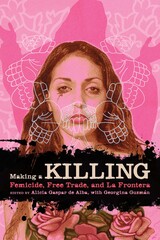
Since 1993, more than five hundred women and girls have been murdered in Ciudad Juárez across the border from El Paso, Texas. At least a third have been sexually violated and mutilated as well. Thousands more have been reported missing and remain unaccounted for. The crimes have been poorly investigated and have gone unpunished and unresolved by Mexican authorities, thus creating an epidemic of misogynist violence on an increasingly globalized U.S.-Mexico border.
This book, the first anthology to focus exclusively on the Juárez femicides, as the crimes have come to be known, compiles several different scholarly "interventions" from diverse perspectives, including feminism, Marxism, critical race theory, semiotics, and textual analysis. Editor Alicia Gaspar de Alba shapes a multidisciplinary analytical framework for considering the interconnections between gender, violence, and the U.S.-Mexico border. The essays examine the social and cultural conditions that have led to the heinous victimization of women on the border—from globalization, free trade agreements, exploitative maquiladora working conditions, and border politics, to the sexist attitudes that pervade the social discourse about the victims. The book also explores the evolving social movement that has been created by NGOs, mothers' organizing efforts, and other grassroots forms of activism related to the crimes. Contributors include U.S. and Mexican scholars and activists, as well as personal testimonies of two mothers of femicide victims.
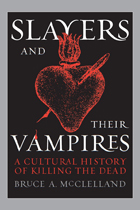
“A fascinating comparison of the original vampire myths to their later literary transformations.”
—Adam Morton, author of On Evil
“From the Balkan Mountains to Beverly Hills, Bruce has mapped the vampire’s migration. There’s no better guide for the trek.”
—Jan L. Perkowski, Professor, Slavic Department, University of Virginia, and author of Vampires of the Slavs and The Darkling: A Treatise on Slavic Vampirism
“The vampire slayer is our protector, our hero, our Buffy. But how much do we really know about him—or her? Very little, it turns out, and Bruce McClelland shows us why: because the vampire slayer is an unsettling figure, almost as disturbing as the evil she is set to destroy. Prepare to be frightened . . . and enlightened.”
—Corey Robin, author of Fear: The History of a Political Idea
“What is unique about this book is that it is the first of its kind to focus on the vampire hunter, rather than the vampire. As such, it makes a significant contribution to the field. This book will appeal to scholars and researchers of folklore, as well as anyone interested in the literature and popular culture of the vampire.”
—Elizabeth Miller, author of Dracula and A Dracula Handbook
“Shades of Van Helsing! Vampirologist extraordinaire Bruce McClelland has managed that rarest of feats: developing a radically new and thoroughly enlightening perspective on a topic of eternal fascination. Ranging from the icons of popular culture to previously overlooked details of Balkan and Slavic history and folk practice, he has rethought the borders of life and death, good and evil, saint and sinner, vampires and their slayers. Excellent scholarship, and a story that never flags.”
—Bruce Lincoln, Caroline E. Haskell Professor of History of Religions, University of Chicago, and author of Theorizing Myth: Narrative, Ideology, and Scholarship,Authority: Construction and Corrosion, and Death, War, and Sacrifice: Studies in Ideology and Practice
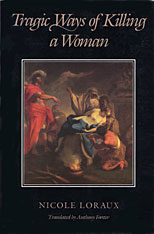

Just what is a human being? Who counts? The answers to these questions are crucial when one is faced with the ethical issue of taking human life. In this affirmation of the intrinsic personal dignity and inviolability of every human individual, John Kavanaugh, S. J., denies that it can ever be moral to intentionally kill another.
Today in every corner of the world men and women are willing to kill others in the name of "realism" and under the guise of race, class, quality of life, sex, property, nationalism, security, or religion. We justify these killings by either excluding certain humans from our definition of personhood or by invoking a greater good or more pressing value.
Kavanaugh contends that neither alternative is acceptable. He formulates an ethics that opposes the intentional killing not only of medically "marginal" humans but also of depersonalized or criminalized enemies. Offering a philosophy of the person that embraces the undeveloped, the wounded, and the dying, he proposes ways to recover a personal ethical stance in a global society that increasingly devalues the individual.
Kavanaugh discusses the work of a range of philosophers, artists, and activists from Richard Rorty and Søren Kierkegaard to Albert Camus and Woody Allen, from Mother Teresa to Jack Kevorkian. His approach is in stark contrast to that of writer Peter Singer and others who believe that not all human life has intrinsic moral worth. It will challenge philosophers, students of ethics, and anyone concerned about the depersonalization of contemporary life.
READERS
Browse our collection.
PUBLISHERS
See BiblioVault's publisher services.
STUDENT SERVICES
Files for college accessibility offices.
UChicago Accessibility Resources
home | accessibility | search | about | contact us
BiblioVault ® 2001 - 2024
The University of Chicago Press


